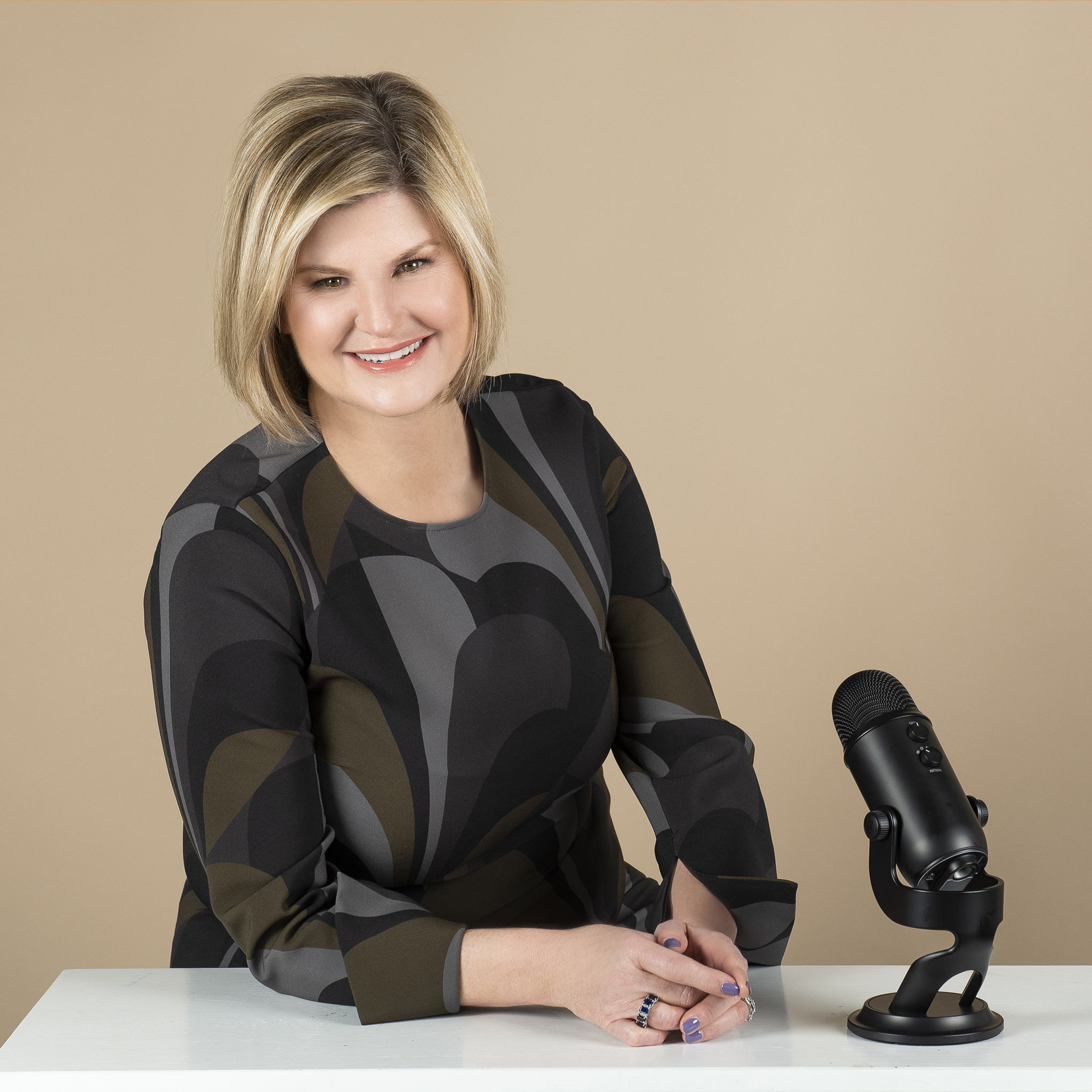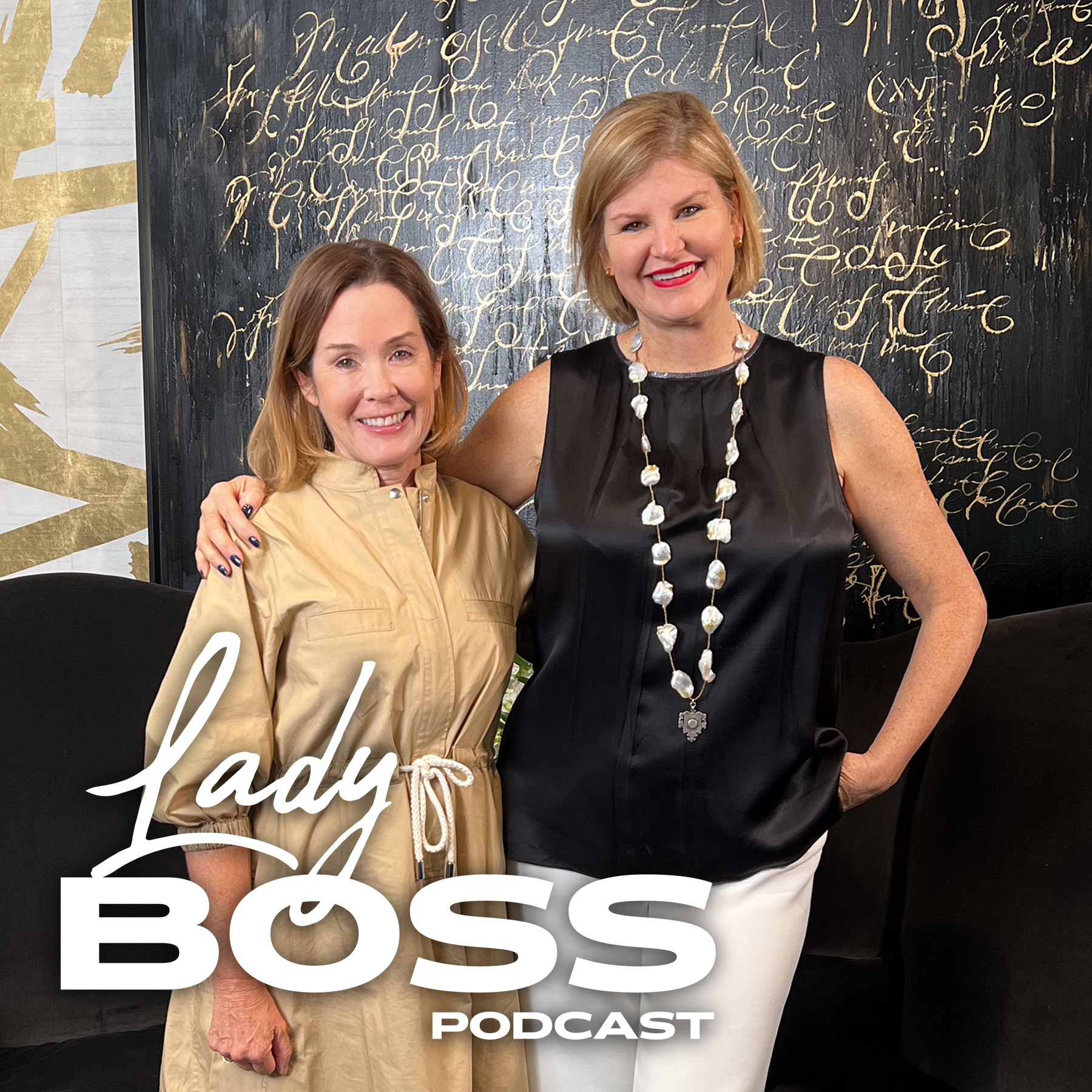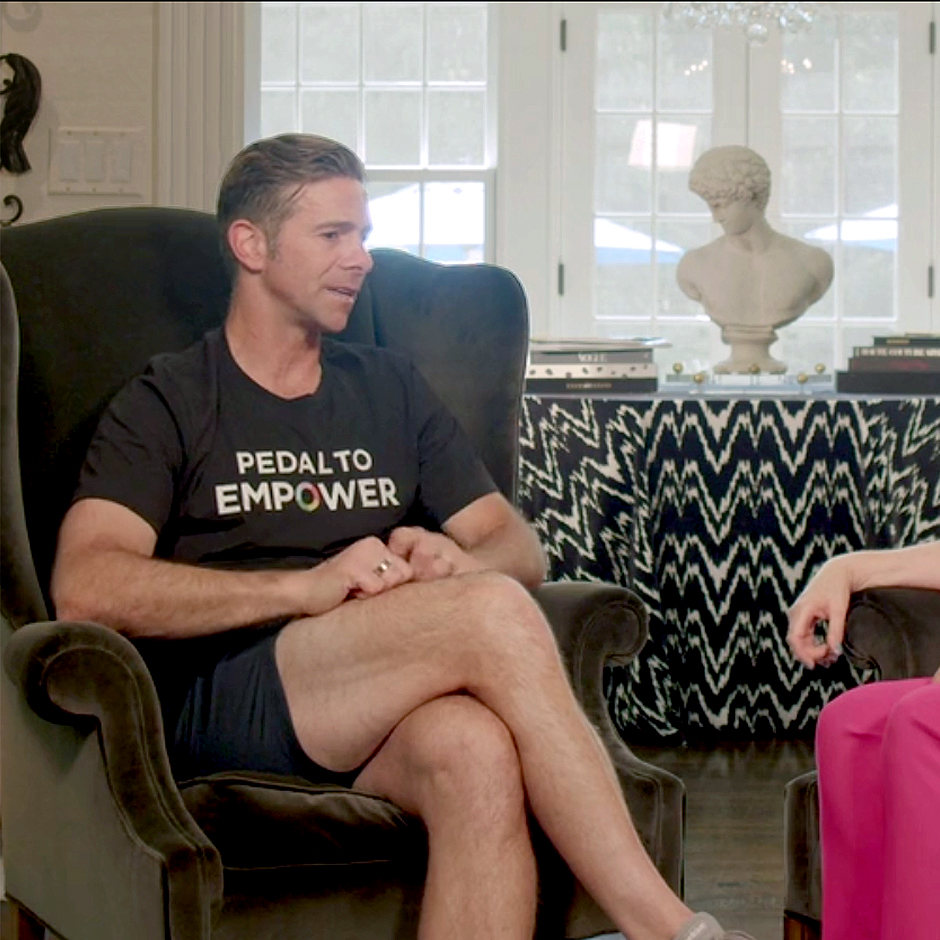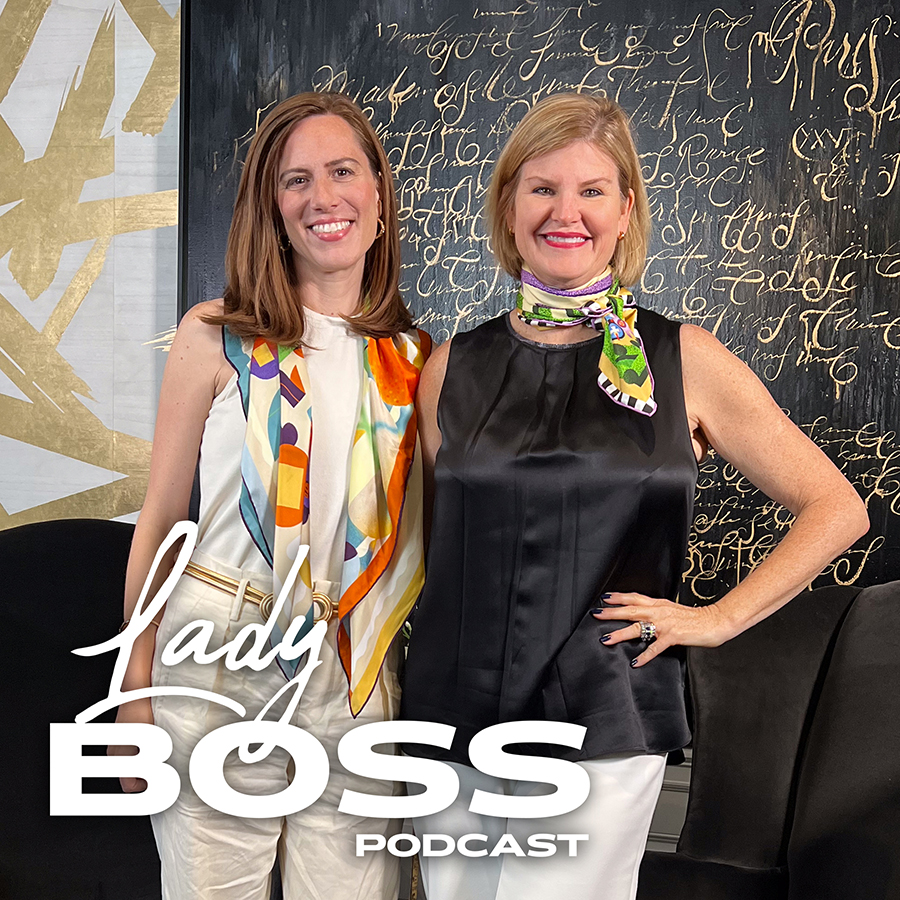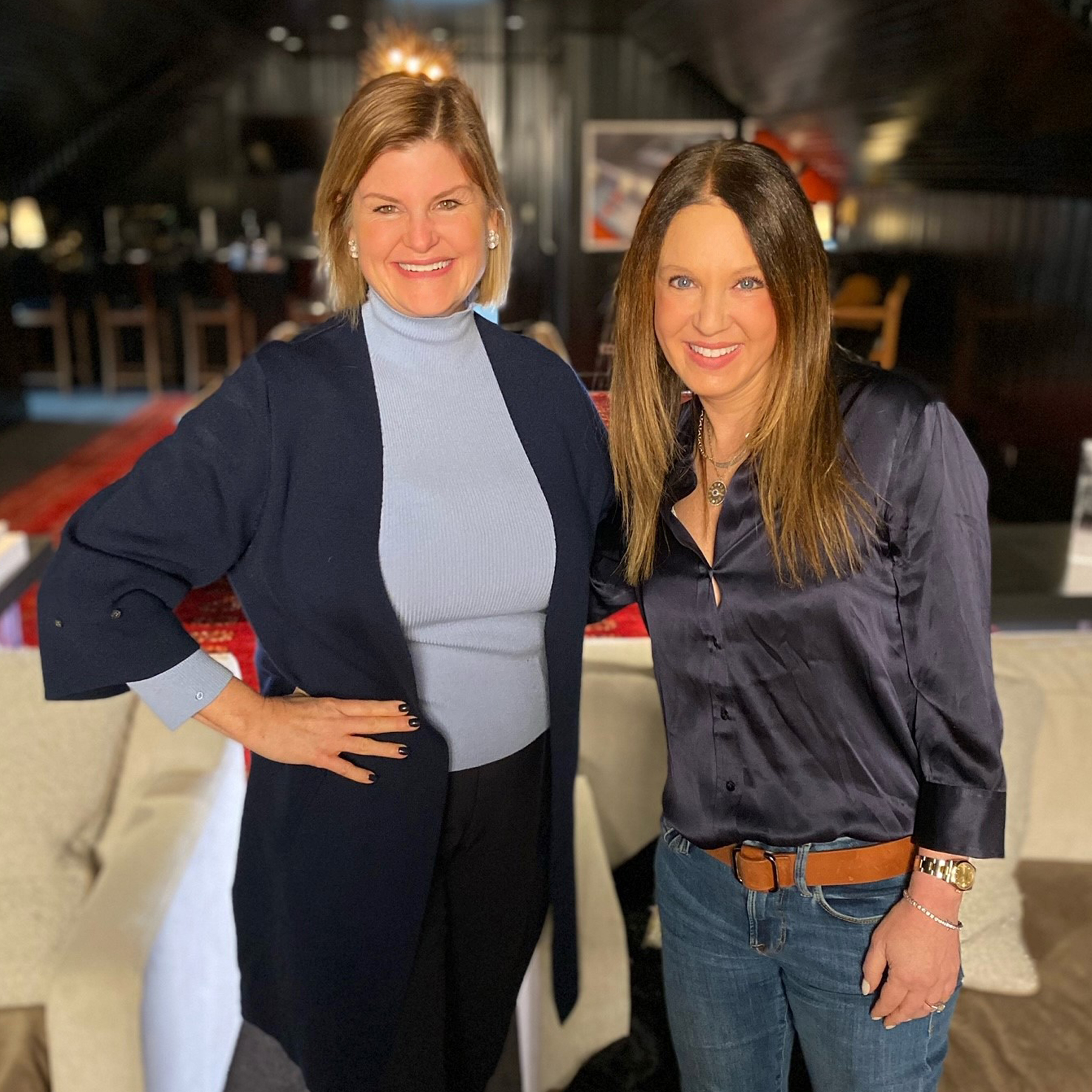Episode Transcript
[00:00:00] Speaker A: So many of us start our business with an idea or a passion that may involve, you know, randomly sort of getting started and not thinking really about what is it we're building. Our next guest thought so intentionally about the brand that she's building, all the way down to what does her shop smell like, what is the experience? When do I remove products? How do I introduce launches? How do I tag my store onto my website so they're coexist, but also interactive? Brand is such an important play. You're really going to find it fascinating to hear the level of detail that Laura White of Archwinetka has put into her store. I think that we can all learn a lot from branding. And the real telltale is, what do you do with that brand that elevates the entire experience?
Okay, so, Laura, I felt like I was going back in time in a great way when I first met you, because I grew up in family business and in retail, and in retail very similar to yours in that it was very something you never saw anywhere, very diverse, nothing cookie cutter about it. So give me the story of Arch and how you got it so fabulous as you have it today.
[00:01:33] Speaker B: Well, as many things are there's little seeds that lead up to everything. But we opened our store two years ago, but that doesn't really mean anything because I've always been playing around with stores for probably 20 years. I've had eight pop ups in I'm sorry, five pop ups within eight years. And that was kind of my business model for so long. And then COVID happened and that changed everything, like, it changed so many other things. But basically what happened was I had a pop up in the space that is Arch right now. And I asked the landlord, I said, I want to have first right of refusal, just in case. And this was right when stores were opening up, but we were still wearing masks, so COVID was still happening. And I think everybody thought I was crazy. Basically within the first week, three people wanted my space. So that night I went home and my husband said, well, you know, you got to open up a store. You've always wanted it, you got to do it. And I said, no, I don't think.
[00:02:32] Speaker A: I want to do it.
[00:02:33] Speaker B: I'm scared. And he basically is like, no, this is the time. So we opened up the store and it's been fast and furious ever since.
[00:02:40] Speaker A: How did you know to have pop ups when pop ups weren't really a thing? Eight years were?
[00:02:45] Speaker B: Well, I had first heard about that they were happening in New York City, and a friend of mine, it was her idea, and she said, let's open up a pop up. And this was yeah, it was definitely eight years ago or more. And how did I hear about it? I don't know. I love shop. I started my business when my first daughter was born, and at that point, I was making handbags. That was during the Kate Spade era, which, I don't know, you're younger than I am, so I don't know if you ever had a Kate Spade bag, but it was like the big the bag. So I designed handbags through a manufacturer in New York, and each handbag, what made it unique was they had vintage buttons on them, and the buttons I turned into pins so you could take them off and put different ones on them. And that evolved into vintage jewelry, and then that evolved into vintage furniture. And then I started doing the Antiques and Modernism show here in Winneca, and I did the botanical garden show, which was the antique and garden show. And so in between that, I would have little people over to my house and little stores here and there. And then that was really, like, the beginning of pop ups. And then I just got the bug, and I'm like, I got to keep going.
[00:03:55] Speaker A: Okay. So there's lots of parts of business, and I think even in my own companies, there's parts I do and parts I like and parts I don't even touch. What part of this entrepreneurial part is you? I hear a lot of creative yes. How are you on the numbers?
[00:04:09] Speaker B: Oh, numbers are not my thing at all. If I could just I've hired somebody recently in the last year who is like she Laughs people say, well, what are you doing for her? And she's like, I do everything Laura doesn't want to do.
But I've learned a lot as I've done it. Numbers do matter, and I do check my reports every single day. So I say I don't like numbers, but when they're good, I love them.
But I am definitely more of a creative person. My husband just recently came on board, and he's not exactly a numbers guy either. We're both creatives. He left advertising, but we've got people to help us with those deficits. Knowing what your weakness is and knowing what your strengths are, I think that's, like, part of the journey as well.
[00:04:57] Speaker A: 100%. I think it's smart to rely on people as long as you try to trust but verify.
[00:05:02] Speaker B: Yeah.
[00:05:02] Speaker A: I've had a lot of friends under the guise of, well, I've got a guy, and they give the guy too much rope and still don't know the numbers. So I always think when you're investing, because I'm guessing the investment for you is the space and the inventory.
[00:05:17] Speaker B: Correct.
[00:05:18] Speaker A: Okay. Yeah.
[00:05:19] Speaker B: And we have our own line, and we're releasing two new products this fall, so the investing is in the manufacturing of that product as well.
[00:05:28] Speaker A: Yeah. So, I mean, I think just thinking about how do you or the CFO, how do you gauge success like, liking the numbers?
I remember early on in my business career just thinking everything looked great but then those bills from China, which is where I was buying inventory, and containers were 200 to a million dollars of inventory were coming. And I'm like, but wait, why don't I have money? It says here I'm making money. Right?
Where's the money to pay the cash.
[00:05:59] Speaker B: Flow is a big cash flow.
[00:06:01] Speaker A: Yeah, exactly. So how would you grow in the model you're in enough to where you could kind of invest in all the products that you wanted to create?
[00:06:09] Speaker B: Honestly, right now, it's about timing and pacing.
There's always something more. Like we talked about that earlier. That's the creativity part. But timing it and releasing it in a timely manner, when you we are growing and it is going quickly. So we're working on that. As far as making projections, that's one of the jobs that this new woman that we hired is helping us with. But it's really about not releasing too much and maybe growing too much too fast. I know that's a buzzword I hear a lot, but a lot of it's intuition, which you might be like, what intuition? But that's like really pretty powerful for us.
[00:06:50] Speaker A: No, I think listening to your gut, I mean, some people have it very tuned up. And if you have it tuned up, it's good. Talk to me about this idea, which I like what you do, but I'm just sitting here thinking about how does the Internet mess you up on this is if you release vendors and at some point you said you pull them back because you aren't wanting to overexpose that vendor.
[00:07:11] Speaker B: Yeah.
[00:07:12] Speaker A: Do you then create something where you've developed a customer for that vendor and now they're hooked on that product and they're just going to go get it on the Internet?
[00:07:21] Speaker B: That's exactly right. And that's why we've developed this business model. That's something we're acutely aware of. I mean, that happened with a line that we carry from Paris, and people would come in and say, oh, I bought this online. And I was like, wait a minute. I know everybody wants to support local businesses, but to an extent, right. They want it faster. I'm very aware of how that works. So our business model at this point, we are 70% vintage. So we really want to draw people in to the store because they know that there's something they cannot get anywhere else. Our tagline is undeniably unique. And we really hold that to the whole idea of we find new vendors, and it's always our intention we're going to carry them for a temporary amount of time. Hopefully we find them before anybody else has. That's a big thing that we look for. And then we're like, sorry, you can get it online, and we want you to keep coming back because what's next? What do you have that I haven't discovered yet? And I'd love to be considered a brand that people come to to find out what is the next hottest thing that I haven't discovered yet. And on top of that, we really are all about stories. We call ourselves the little shop of stories. And there are so many stories to tell, and that's what we love to do and that's what's interesting and it's engaging. So you can't keep telling the same story every time. Our store is small but mighty, and it can be that because things rotate all the time.
[00:08:57] Speaker A: I think from an in shop perspective, you've got it swayed. And I think that however you get people back, which I think maybe is your fresh flowers on Fridays and some of the different events you do, your book signings. I'm just wondering. A big thing in business that I've always been taught is that the reoccurring revenue is powerful. So you can keep growing, so you can rely on these three things to keep going, whether it's you, your husband or an employee doing it, they're going to buy and then you can be working on the new. And it's almost like thinking about how could you at least put those vendors that you developed, you developed the customer base, you have a loyal customer base. How could you put those online?
Maybe you don't carry the inventory and say, hey, come on in. You can get 10% off because I don't know. The cost of all business for all of us is acquiring a customer.
[00:09:50] Speaker B: Right.
[00:09:50] Speaker A: Growing and maintaining a customer is not very expensive.
[00:09:53] Speaker B: Right.
[00:09:53] Speaker A: I just don't like that you're giving up the customer back to the brand after you did all the heavy lifting.
[00:09:59] Speaker B: Yeah, but I think that's what's unique about what we're doing is how we're defining our customer. We want our customer to come back to us because we have something undeniably unique.
I think you have to be moving at the pace of how things are rolling. Right. And so I think that's really there are some basics that we will always carry, for sure, but I don't want to be known for that. I want to be known for what's new. And that's what the vintage affords really is. You can't get this anywhere else?
[00:10:31] Speaker A: No. I mean, it's not an easy business, what you're talking about.
[00:10:35] Speaker B: No, it's not.
[00:10:36] Speaker A: You're basically doing events in a shop.
[00:10:39] Speaker B: Yeah.
[00:10:39] Speaker A: And I think events business is the hardest business we could ever put our hands on.
[00:10:42] Speaker B: Yeah, probably.
[00:10:43] Speaker A: And it seems like your passion.
[00:10:45] Speaker B: Totally. Yeah.
[00:10:46] Speaker A: Why can you find so really if the old school way of doing it. My parents went to Europe where the brands were, and they went around Italy and they meet vendors and that guy would go, go talk to this guy, and ended up bringing some big brands we know today to us for the first time. But now you could just go through your instagram and figure out that, which is crazy.
[00:11:05] Speaker B: Yeah.
[00:11:06] Speaker A: So how can you source things that people haven't heard of? What makes you so good at that.
[00:11:10] Speaker B: Yeah, hard work. But I've trained my eye. I don't like anything basic. I like things that are you just know it when you see it. And this is the vintage world. We haven't talked about our line of products at all, but in the vintage world, it is that sourcing element that is key. And I've been doing it for a really long time. So it's about relationships and constantly trying to think about how to get in there a little sooner before somebody else gets it.
People have to like you and they want to have to work with you, and that's not hard. I love people absolutely love stories and talking with people about their stories. And again, it's the vintage, so it's the story and the history of a piece. So sourcing, it's fun.
[00:12:01] Speaker A: Let me ask you this. I know that let's just take lipstick. Not that that's one of your private labels, but Chanel lipstick. And if I came out with a lipstick, the lady boss lipstick would be made by the same people, more or less.
[00:12:14] Speaker B: Right.
[00:12:14] Speaker A: Packaged by the same people. It would cost $5. Now, Chanel is going to sell it for 48, and I'm going to sell it for ten.
Why did you believe that people would trust the Arch brand enough to private label things?
[00:12:28] Speaker B: That's a good question, I guess. Well, right now, I'm pretty centrally or locally located, and I live in the community, so people know me and I believe that they trust me. But I'm going to say the power of packaging is really huge. My dad was a graphic designer, a package designer. So I grew up like you, with your background of your dad being an entrepreneur, your parents being entrepreneurs. I mean, we sat around the table and talked about ideas and what this should look like. I need a name for this. Let's talk about names for things. And that was very much what my husband did over the last 30 years. So packaging, you can convey trust through packaging. You convey a feeling through packaging. And our store has a feeling there's an emotion there, and I don't think it has anything to do with me. I don't know what it is, but.
[00:13:23] Speaker A: It'S just a good no, I think you hit it. I mean, so, look, if we didn't know a thing about Chanel, we'd say, Why do they get $48? They have good packaging. I grew up in the packaging business. My first career was all packaging. And I think when I saw your products and I was like, wow, they look super high end. I don't know what's inside. It could be junk.
[00:13:42] Speaker B: Right. But it's not.
[00:13:43] Speaker A: No, I know it's not. No, what I'm saying is the first impression was really strong, so automatically you would have expected to pay more. And I think that it's marketing. So you come from a marketing background, graphic design background, your husband's background. I think, yes. Your competency there is marketing and what you're leaning on. I think that's really fed on that. That's kind of what I wanted to hear because I think a lot of people do private label to make more profits, and I'm guessing that private label is a more profitable venture for you, but not Uber because of the packaging. Is that true?
[00:14:22] Speaker B: Yeah, I was going to say I still believe in spending more money on the packaging. Not just that it looks expensive, but I believe you actually have to spend the money on that.
It's important how the paper feels.
[00:14:36] Speaker A: You can see. Yeah. So, Laura, we always want to talk about scaling because I think you're very growth focused. What does the next couple of years of growth look like? And when do you know you've hit your success goals?
[00:14:49] Speaker B: Well, I think we've hit the first success goal because we are already looking to open up a bigger space because there's a lot more offerings that we're getting in the queue to offer.
[00:15:00] Speaker A: Still in maneka.
[00:15:01] Speaker B: Yes.
[00:15:01] Speaker A: Oh, nice.
[00:15:01] Speaker B: It's not a done deal, but we would love to have a couple of stores for us.
We're not shopkeepers. We're really, truly trying to build the brand of arch. And what does arch represent? And I think if you pay a lot of attention to, and I do pay attention to this, what's the common psyche? What's going on in our world? I'm fascinated by that. What do we need? How do we feel? And that was the thing I thought about when we first opened up the store. I said because it was COVID, as I mentioned before, or we were just coming out and I connected so much with people through masks, and people were telling me, I don't feel good, I don't know what I'm doing, I don't know where to go. And I thought, I want this to be a place where people feel better when they walk in. And so that's why we have flowers, that's why we have plants, that's why things smell good. There's high ceilings and natural light. Like all those things make a difference. There's good music.
It's that experience.
That was my question. More stores. What do I want to do? Yes, more stores in really unique places. I also like to pay attention to, like, where are people going? Okay, but not everyone's going there. So where's the next place that someone's going that we haven't discovered yet? That fascinates me.
So I think that this is a golden age of retail. I think, yes, it's extremely challenging, but people are responding to that little brand and that little feeling that they have when they use something from a store, when they step into a store, or when they go onto a website that feels a little bit different and they feel like they're getting something special. So in that same way, we are looking for that what is that next town or vibe? And I think there's a lot of I see a lot of brands popping up in bigger stores, which I think is really kind of interesting, at least maybe having a pop up, especially with the vintage in a place coast to coast. And it's exciting, really exciting.
[00:17:09] Speaker A: No, and I mean, creativity never goes out of style.
[00:17:11] Speaker B: No.
[00:17:11] Speaker A: Can't wowing your customers. How'd you lure your husband into the business?
[00:17:15] Speaker B: He's always been kind of it's been in the plan for a long time, actually.
He was a creative director in advertising, and that made a lot of sense to me, to him, like, let's use your skills here, your marketing skills, your contacts, your development.
But he always loved going to flea markets. Like, when we were first married, we go to flea markets, and he loves the thrill of the hunt just as much as I do, so that wasn't hard. His mom is actually somebody who was a role model for me very early on. After I had my first baby three months in, she said, Laura, whatever you do, you have to do something else, or else you'll go nuts. And I took it to heart, and she was the one that would take Rob, my husband and I, to the Antiques and Modernism show when we were really young. And she said, look at this. She taught us about quality and just really unique things, and so it was natural. And his father was an entrepreneur, so it was not hard.
It was hard to keep him at work, actually.
[00:18:18] Speaker A: Okay. Yeah. No, I think it makes know, like I told you, my parents'business, which was custom clothing, was at a different really? But he took it from Providence to Chicago. He dressed every CEO in New York that wanted a certain look that couldn't just get it off the rack, and he made to measure clothes, and it looked hard. From my observation, it was a six and a half day a week, always starting over the sale. Maybe with you, it wasn't what you're wearing today. It was the next thing, but it's hard.
[00:18:49] Speaker B: Isn't an entrepreneur hard, though?
[00:18:52] Speaker A: Well, it is. I think for me, it's just less hard the bigger you get.
[00:18:58] Speaker B: Really? That's encouraging. I like hearing that. Yeah.
[00:19:00] Speaker A: I think not enough people realize that we all get fear about things, but the bigger you get, and I don't mean overexpanding I love that you're thinking about the timing of expansion, but you can handle something a lot bigger than you really know until you're asked to do it, you don't know it. And just the numbers, the math just gets a lot easier. So the basic worries of a smaller business aren't there. The worries are more around people and inventory, maybe, or production, but I think all those things are pretty block and tackling, so yeah, I found that playing upstream has always been easier than playing downstream, where every customer matters. Where every sale matters.
[00:19:46] Speaker B: Yeah.
[00:19:46] Speaker A: I see because you're not coming from scarcity, you're just coming from like if it's not this, it'll be next. And you can really kind of churn the wheel faster and go faster, which I also like and I think you said it. In the world we live in, amazon has made it so that we all expect delivery. Same or next day? Next day wasn't good enough. So we went to same day what?
I make custom products and people think it should be there. And so I just said, okay, we're going to start making them in a week or a week or two. And nobody's talking about the price. They realize, oh, I can get a custom product fast, which is what the requirement is. So I think your business just fascinates me. It's so close to what I grew up with and yet every single thing in the world has changed and you seem to be making it thrive. How much of your business is online versus in the shop? Great question.
[00:20:38] Speaker B: So we're launching. We have a website. It's not great, it's not slick. The navigation has been just kind of cookie cutter. And so Monday we had a photo shoot and we are hoping to launch our new website with better navigation and more products and more that's really kind of this key. I think our goal is to be a two pronged fork where the website brings people into the store, the store leads people to the website. And I really think that's kind of an engine that can churn so much better. So right now around the holidays, our website is much busier, but right now it's probably 10% of our business. So we want to grow, that for sure. And I think there's a lot of room for that.
I was going to ask you when you were talking earlier, since you have so much experience, are there any indicators in your mind?
How do you know when to expand or do you just do it? Are there like little flags? Hey, you know, I really think it's.
[00:21:43] Speaker A: I mean I think if you feel outside forces, it's too know. As an example. You're in Hubbard Woods. Once upon a time, Hubbard Woods had empty stores all well if you looked around and said, I'm not next to anybody, it's too late.
I call it not stock picking. But if you start seeing trends, then you need to think, well why would they get better? Or why would they change? If one guy across the street goes out and the next guy goes out, you go, something's changing here. Maybe I need to relocate. Same thing with the website. If you start seeing, okay, Christmas is good. Well, okay, great. What do we do in Christmas and why couldn't it be great during the rest of the year? What buttons did we hit during Christmas? Because it's not organic traffic. Probably. We all have to paid ads and do things on our social to get activity, or did I not put enough new things on? Did I not hit website with the newsletter? So I like looking at the numbers in the sense of what are they telling me, really? And I think the good financial people have a creative mind, not creative accounting. They're looking at the numbers and see the trends and then ask you the questions, why does this line look better? Why has vintage gone down? Why is the website picking up? I mean, if you had crazy, huge growth and it was unexplained, would it be good?
[00:23:04] Speaker B: Well, you have to be able to explain.
[00:23:05] Speaker A: You have to be able to plan for it and know for it and know what button you push.
[00:23:09] Speaker B: Right?
[00:23:09] Speaker A: So it's no different than social media. And if you got a whole gaggle of new followers but you didn't know why, that wouldn't resonate with me as hard as, hey, we hit this, this and this strategy, we know that this one worked and this was the result.
[00:23:24] Speaker B: Right?
[00:23:25] Speaker A: So I think just trying to tie actions to results is a powerful thing that you can do. So you go, oh, that worked.
[00:23:33] Speaker B: Let me put the pedal yeah, yeah, okay.
[00:23:36] Speaker A: Yeah. All right. Where can people find you?
[00:23:39] Speaker B: You mean our address or Instagram? I would say instagram. And I was going to tell you, actually, instagram actually sells probably more than our website right now. We sell so much directly through Instagram all over the country. It's really such an amazing marketplace. So you can find us at Arch by Laura White. You can find us on our website, but don't look at it until the end of this month because it's going to be so much better, which is Archglow.com. And then you can find us in Hubbard Woods at nine one three Green Bay Road.
[00:24:06] Speaker A: That's awesome. Thank you.
